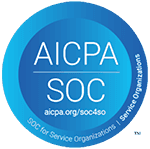The Financial Accounting Standards Board (FASB) Accounting Standards Codification (ASC) 280, “Segment Reporting,” was issued in June 2009. The primary objective of ASC 280 is to provide more detailed and relevant information to users of financial statements, to improve users’ understanding of the entity's financial performance and potential. ASC 280 applies to public entities required to file financial statements with the SEC; private entities are generally exempt.
Accounting Standards Update (ASU) 2023-07 was issued in November 2023 and contains new requirements that include improvements to the information that a public entity discloses about reportable segments and reportable segment expenses. In addition, introduces the need for additional disclosure requirements and expands the requirements of the entities with a single reportable segment.
Does this apply to broker-dealers?
Yes, ASU 2023-07 and segment reporting apply to registered broker-dealers, as they are required to file or furnish financial statements with the SEC, under ASU 2013-12 and are considered Public Business Entities. (While ASC 280 uses the term Public Entities, we do not believe that term is different than the term Public Business Entities for this purpose). Thus, non-issuer broker-dealers are also considered public entities and are subject to the requirements of ASU 2023-07. Many broker-dealers are considered a single reportable entity and with ASU 2023-07 have been given clarifications regarding necessary disclosures.
When does the ASU 2023-07 go into effect?
The ASU is effective for fiscal years beginning after December 15, 2023, and for interim periods with fiscal years beginning after December 31, 2024 [1].
What disclosures need to be made for Segment Reporting?
The following disclosures are required for all public entities, regardless of whether they operate in a single segment or multiple segments:
- Factors used by management to identify the reportable segments (management approach).
- Types of products and services that produce revenue for each reportable segment.
- Title and position of the Chief Operating Decision Maker (CODM).
- Detailed information about segment profit or loss and assets.
- Detailed reconciliations to consolidated amounts.
Where should the disclosures be made?
A separate disclosure should be made for all public entities that operate within either a single or multiple segment environment. Certain segment information required may already be included in entity-wide information on the face of the financial statements and references can be made to such information to avoid duplicating the information. (i.e. The nature of business and accounting policies of the Segments are the same as described in the organization and nature of business and summary of significant accounting policies.)
The management approach identifies segment information based on how the entity organizes its internal segments for operational decisions and performance assessments. As such, the entity’s segment disclosures must be tailored based on how management makes decisions about allocating resources to segments and evaluating performance.
How can Integrated Solutions Help?
At Integrated Solutions, we are ready to assist broker-dealers and other public entities navigating compliance with ASC 280 and implementing ASU 2023-07.
Please reach out to us for our guidance or assistance in reviewing management’s decisions relating to operating and reporting segments or addressing any other concerns regarding the FASB standards.
[1] Even though ASU 2023-07 applies to interim financial statements and FOCUS Reports that are issued on an interim basis and are supposed to be prepared purportedly in conformity with Generally Accepted Accounting Principles, we are not aware that any regulatory authorities have modified or have prepared to modify the Reports to accommodate the requirements of the ASU.






